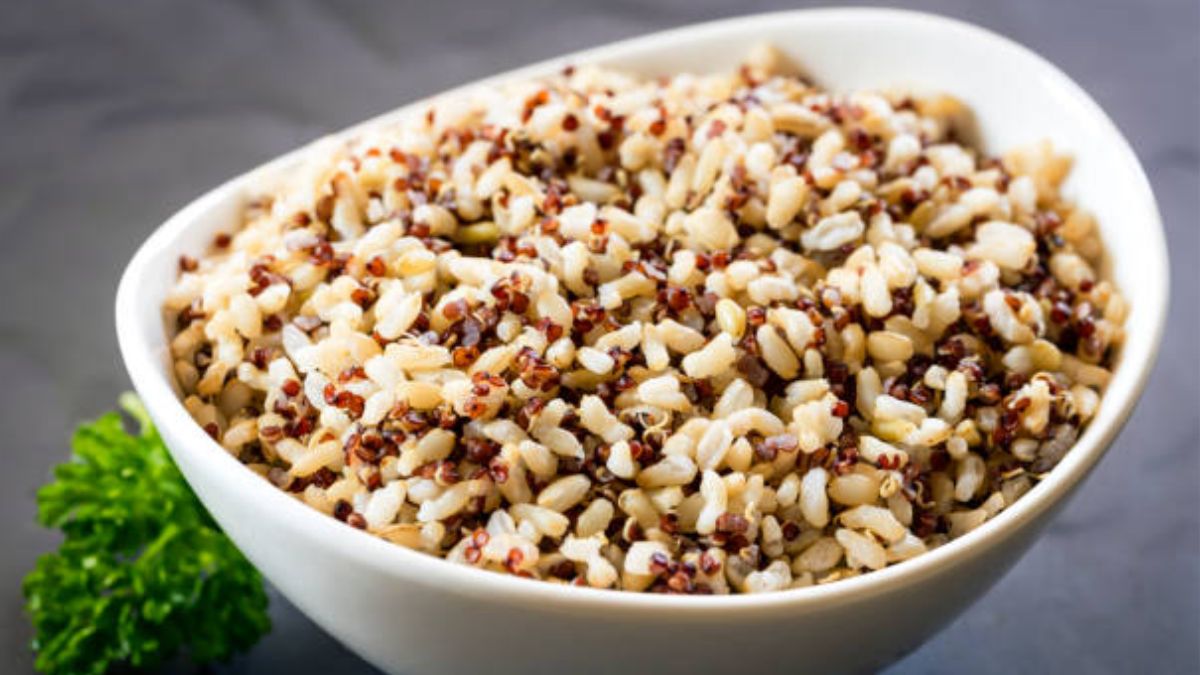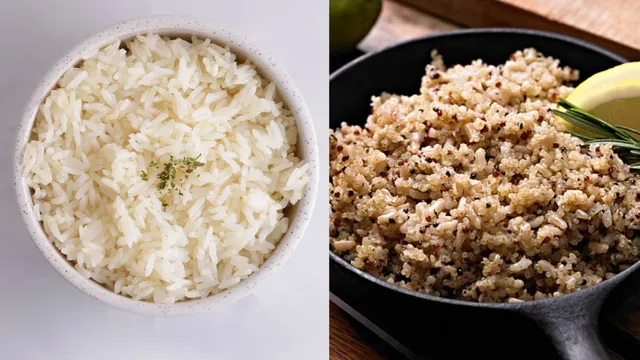- By Iram Hussain
- Thu, 03 Jul 2025 02:48 PM (IST)
- Source:JND
For centuries, rice has been an indispensable component of South Indian cuisine and serves as a fundamental staple in the daily diets of millions of Indians. From the spicy flavours of chicken biryani to the comforting bowl of dal chawal, rice is a versatile ingredient that finds its way into numerous dishes. Its ubiquity is undeniable, making it challenging to exclude from one's diet. Rice has gotten a bad reputation for causing weight gain, sparking a lot of debate.
As a carbohydrate-rich food with relatively low protein content, rice has become a topic of debate. Fortunately, various rice options are available like white and brown rice. Here, we've listed the differences between these rice varieties and drawn a comparison that will help you make a better decision.
Differences Between White Rice And Brown Rice
1. Brown rice is a whole grain while white rice is refined, stripping away nutrients and fibre. This fundamental difference significantly impacts the nutritional value of each type of rice.
2. Brown rice boasts a higher fibre content compared to white rice. Fiber aids digestion, satiety and blood sugar control, making brown rice a better choice for those seeking digestive health benefits.

Benefits of brown rice (Image Credits: istock)
3. Brown rice is a rich source of magnesium, a vital mineral that plays a crucial role in maintaining healthy blood sugar levels. Magnesium deficiency is linked to various health issues, making brown rice a valuable addition to a balanced diet.
4. Brown rice stands out as a nutritional powerhouse, boasting higher levels of phosphorus, iron, antioxidants and vitamins compared to its white rice. These nutrients are vital for energy production, immune function and overall well-being, solidifying brown rice's status as a nutritious staple.
White Rice vs Brown Rice: Which Is Healthier?
While brown rice is often touted as the healthier option white rice can still be a part of a balanced diet, particularly for those with specific dietary needs or digestive sensitivities. Although both types are rich in starch, brown rice offers more fibre, nutrients and antioxidants. Despite its superior nutrition profile, brown rice isn't inherently 'better' than white rice. In moderation, white rice can be a harmless addition to a well-rounded diet, providing essential carbohydrates for energy and satiety.
Disclaimer: This content, including suggestions and advice, provides generic information only. It is in no way a substitute for qualified medical opinion. Always consult a specialist or your own doctor for more information before making any drastic changes in your lifestyle.

